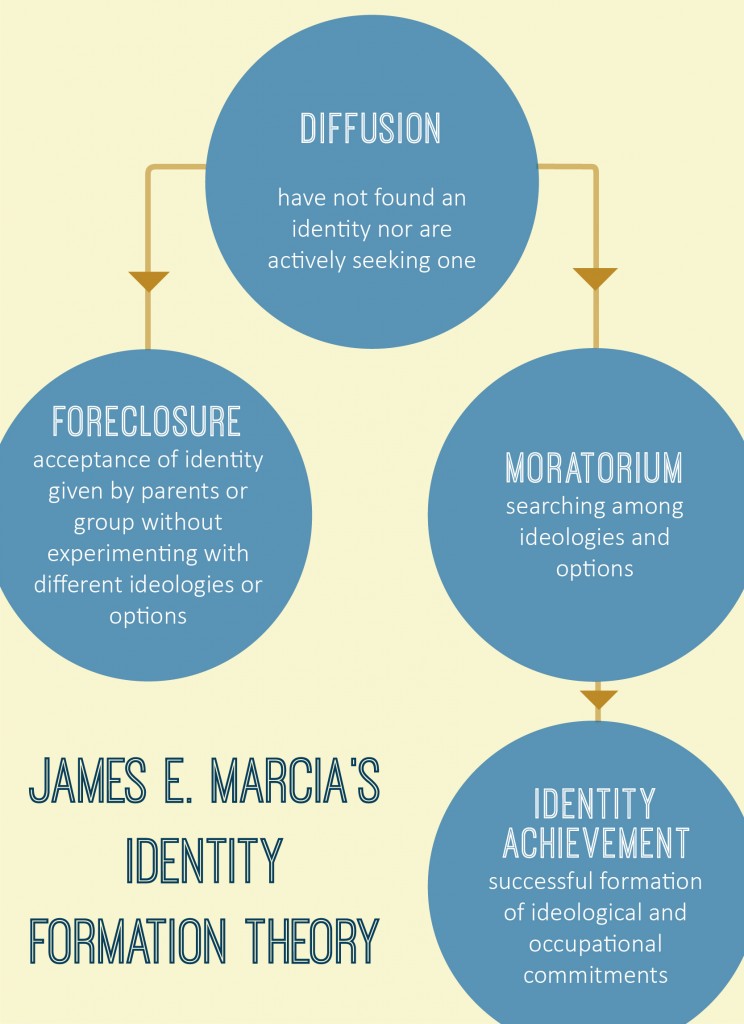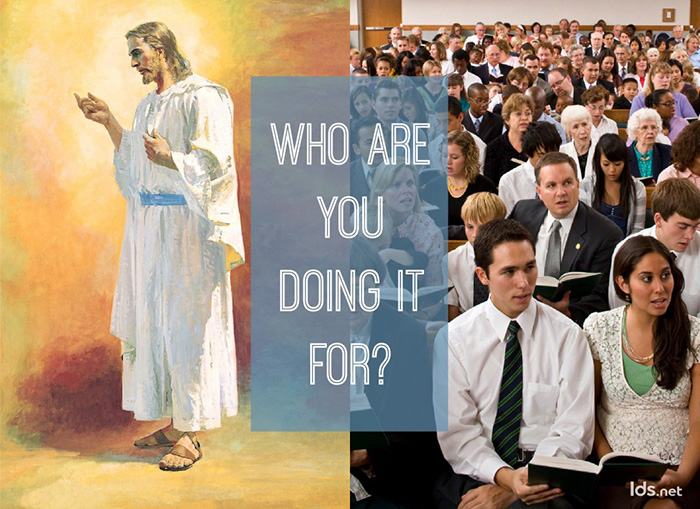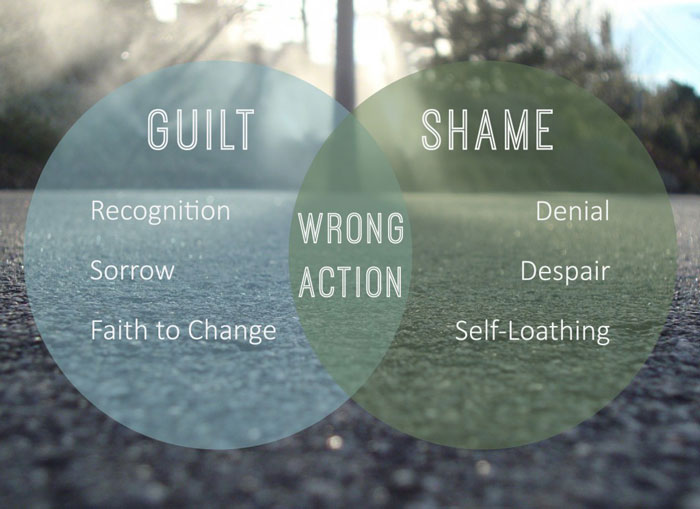How the Science of Identity Formation is Crucial to Latter-day Saints
Recent research has shown that religious individuals can struggle with developing individual identity. And members of the Church occasionally tell their own stories of feeling lost within the community.
Are all members of The Church of Jesus Christ of Latter-day Saints the same? Anyone who’s spent ten minutes in a sacrament meeting knows that’s not true. But for a faith where we know that God loves us individually, and knows us by name, we must learn to embrace and develop our individual identity.
By understanding the struggles some face with identity, and learning how to address them, we can learn compassion, and help strengthen the foundations of the church.
The Church is so much more powerful when individual members have a healthy sense of themselves. When we know our strengths, weaknesses, and tendencies, and are able to accept them for what they are, we can truly work together towards building the Kingdom of God.
There are at least four reasons why finding your identity as a member of The Church of Jesus Christ of Latter-day Saints can be challenging:
All of the above difficulties are side-effects of very positive and important aspects of the gospel, such as faith, selflessness and being “in the world but not of the world.” We shouldn’t get discouraged by the difficulties, but we should also not ignore them. Here are some insights to help you or those you lead become comfortable with their own individuality.
Questions Can Lead To Strength

1 – Understand Exploration and Crisis are Important to Identity Formation
Most of us understand that having sincere questions is different from faithlessly doubting. However, sometimes we may be afraid to confront challenging issues or explore the depth of our belief because we feel like we are being disloyal to the Church by doing so, or we fear that we may lose our testimonies.
At least one study supports the idea that Latter-day Saint teens, during adolescence, may have a tendency to skip the exploration phase which is important to identity formation by simply accepting an identity from their parents or the Church.
Although this research is specifically applicable to adolescents, it is nonetheless important to consider its implications on all members of the Church. The research uses a well-known identity formation theory propounded by psychologist James E. Marcia in the 1960’s, which proposes that adolescents can be grouped into four categories based on their level of identity achievement.
On the low end is identity diffusion. People in this category have not found an identity nor are they actively seeking one. They are defined by a lack of commitment ideologically and occupationally. When adolescents experience an identity crisis and begin actively trying to define themselves and make commitments, they enter a stage called moratorium.
Moratorium adolescents are searching among ideologies and options, and often struggling to reconcile contradictions between the wishes of their parents, the pressures of society, and their own desires.
Ideally, moratorium adolescents move toward a stage called identity achievement, which represents the successful formation of ideological and occupational commitments.
There is, however, another status, and it is the one that may be higher than average among members of the Church. Marcia calls it identity foreclosure. It occurs when adolescents simply accept the identity given to them by their parents or group, without experiencing a crisis or experimenting with different ideologies or options.
Although the single study linking foreclosure with Latter-day Saint teens was not designed to make generalizations about Church membership as a whole (it was only conducted at one location in Utah), it should be enough to get Church members thinking. Perhaps we sometimes skip some important psychological steps in identity formation.
Marcia’s research indicated that subjects in the foreclosure category perform poorly on stressful tasks, have self-esteem that is vulnerable to negative information, and have difficulty setting realistic goals for themselves. Certainly, these are not the kind of Saints we need in order to move the Lord’s work forward with power.
The take away
Don’t automatically become distressed if you or someone you love goes through a period of exploration. This may actually be what they need in order to form a solid identity as a disciple of Jesus Christ.
Try this
Think of someone you know who is going through a sincere crisis of faith (which is different than a rebellion against God’s commandments, which would require a different response). Write in your journal what you could say to them next time they bring up their concerns. Make plans to express to them your confidence that they are not any less valuable for this experience, and that if they take their questions to God they will actually be strengthened by it.
2 – Learn to Faithfully Confront, Rather than Avoid Challenges to Identity

The scriptures are full of identity crises resulting in positive change. Some are explicit, while some are implied. The accounts make it clear that we should not avoid crises or sincere questions.
For example, imagine what would have happened if Nephi had not allowed a question in his mind about his father’s prophet-hood to bring him to his knees. Likely that question was brought on by the upheaval in his life that occurred when his father decided to leave everything behind and move his family to the wilderness.
Nephi urgently needed to know if his father was a prophet or not. For all we know, that prayer recorded in 1 Nephi 2:16 was the turning point that led him to a solid identity of faith in Christ rather than the worldly identity espoused by his brethren.
Nephi tells us in the same verse that it was because of this prayer that he did not rebel against his father like his brethren did. His brothers stuck to their old identity, while Nephi embraced the crisis and sincerely asked the Lord for a resolution. He wasn’t afraid to explore the question: Is my father really a prophet?
Even Peter, the great Apostle, likely experienced such a crisis when he received the revelation on preaching to the Gentiles. All his life, he had identified himself as one of the covenant, chosen people of Israel, set apart from the unclean nations of the earth. Now, he was being asked to redefine himself ideologically.
Peter also embraced the crisis, immediately accepting the Gentile men who sent for him (see Acts 10:19-23). Because of his faith and willingness to consider the vision he had, even though it seemed to contradict his beliefs, the ministry among the Gentiles was begun.
And then, of course, there is Joseph Smith, whose story and crisis we all know well.
The take away
Real, sincere questions should not be ignored, even if they threaten your identity as a member of the Church. Only in overcoming such crises can we form a stronger identity.
Try this
Make a list of some spiritual questions that have bothered you in the past. Pick the one that is the most important to your life right now, and make it a matter of study and prayer. Record in your journal the answers you receive.
High Expectations Need to be Processed Properly
1 – Be Accountable to God before Other People

We aren’t likely to get to know ourselves if we feel that who we really are doesn’t measure up.
Psychological research indicates that people take a bigger self-esteem hit from comparing themselves to more successful members of their own group than they do comparing themselves to people outside their group. In other words, you will be more depressed if you don’t measure up to the stature of Brother and Sister so-and-so then if you aren’t as cool as the non-LDS Jones’.
This means that by nature, Church is a place where comparison is especially damaging. Stephen R. Covey, in his world-famous book 7 Habits of Highly Effective People, had this to say about what he calls “Church-centeredness,” a condition where people base their self worth on perceived religious success:
“In a Church-centered life, image or appearance can become a person’s dominant consideration, leading to hypocrisy that undermines personal security and intrinsic worth…because the Church is a formal organization made up of policies, programs, practices, and people, it cannot by itself give a person any deep, permanent security or sense of intrinsic worth. Living the principles taught by the Church can do this, but the organization alone cannot.”
When you feel like you are not friendly enough, not loving enough, not “spiritual” enough, consider whether you are feeling this way because God is prompting you, or whether you are simply comparing yourself to others.
As Elder Neal A. Maxwell has said, “God does not begin by asking us about our ability, but only about our availability, and if we then prove our dependability, he will increase our capability.” In other words, who we are right this moment is enough for God to work with, despite how we may feel when we compare ourselves to others.
The take away
As the Lord says in Doctrine and Covenants 122:9, “Fear not what man can do, for God shall be with you forever and ever.” If you are accountable to God first, all you have to do is your own personal best to be friendly, to be loving, etc. Your version of these attributes won’t look exactly like somebody elses. Don’t stress about that.
Try this
Think of your current or last calling in the Church. In your journal, create a T-Chart. One one side, list the visible things that members and Church leaders expect you to do as a part of your calling, in order of importance (to them). Only list the actions that they can observe. On the other side, list the visible and invisible things that the Lord expects you to do, in order of importance to Him. Consider whether you have allowed any items on the people side to take precedence over the items on the Lord’s side. Make plans to put all of the Lord’s priorities ahead of the social ones.
2 – Don’t Waste Time Feeling Ashamed

When we feel like we don’t measure up, we are likely to feel either shame or guilt.
According to renowned shame researcher Brene Brown, shame can be defined as a feeling of unworthiness. We feel unworthy of connection with others (and in our case, with God as well).
Guilt, according to Brown, is different than shame. Guilt is a form of “cognitive dissonance” (a perceived disconnect between our beliefs and our actions) that can help motivate us to overcome our weaknesses.
“The difference between shame and guilt is best understood as the difference between ‘I am bad’ and ‘I did something bad,’” says Brown in her book Daring Greatly. Shame may cause us to run away from our deep self, because we feel like it would be better if we were someone else.
Sometimes in the Church we confuse shame for humility. It seems socially appropriate for someone who has sinned to express that they felt like a terrible person, that they felt depressed and down on themselves until they received forgiveness. This perpetuates the idea that after every sin, we should mentally shame ourselves until we become depressed.
If we really understand the atonement, we will know that there is no reason to feel ashamed (in the sense defined above). If Christ wants to save us (and we know He does), it follows that we are still worth saving, no matter what we have done. We are worthwhile.
We all may feel some degree of shame during the process of repentance (and we should definitely feel guilt), but perhaps the shame is due to the fact that in the midst of our sin we have lost perspective on God’s love for us, rather than because God wants us to feel worthless. Recognizing the difference can help us see shame as a condition to get out of as soon as possible by remembering God’s love rather than something we should impose on ourselves as a punishment.
The take away
We need to learn to distinguish between shame and guilt. It’s easy to get confused, especially because shame is sometimes confused for humility.
Try this
Study scriptures and General Conference talks about repentance, focusing specifically on the difference between guilt and shame. After studying and pondering, write down your personal understanding of how Heavenly Father wants you to feel and act when you make a mistake. Note whether your description matches how you typically respond when you fail to measure up. Make a goal to focus on changing your response to match your description.
We Can Be a Minority Without Losing our Individuality
1 – Understand that Minorities have Identity Issues

Studies have shown evidence that ethnic minorities tend towards identity foreclosure, which often comes with what is called an “assigned identity.” This is an identity that is essentially passed on from the group, rather than decided upon by the individual.
Interestingly, the study involving Latter-day Saint adolescents discussed earlier showed that Utah Church members behaved like an ethnic minority in this regard even though they are not ethnic and they are a religious majority in their state.
This was attributed to the fact that they still perceived themselves as being a minority in a larger societal context. So Utahns and Church members in general, don’t count yourselves out.
One possible reason for minorities’ identity foreclosure, according to the authors of the study, is that minorities are pressured by the dominant group to commit to their identity earlier on. In other words, nobody questions you if you are a white, Protestant American–but if you are a black, Mormon American you would get a lot of questions.
Others’ questioning would push you to defend your identity by committing to it, sometimes before you had done sufficient exploration to really own it.
The take away
For the foreseeable future, members of the Church will feel like a minority almost everywhere they live. The pressure from the majority is real. Recognizing this pressure is the first step in handling it appropriately.
Try this
Think of a time when someone challenged you about being a member of the Church. How did you respond? Did you become defensive and answer with more certitude than you actually felt (identity foreclosure)? Write in your journal how you could respond next time you are challenged in a way that is faithful, honest and non-defensive. Also, make plans to study and pray in order to gain a stronger testimony of the principle you felt insecure about.
2 – Discover the “I’m a Mormon” Principle
This suggestion isn’t exactly scientific or scriptural, but take this advice for what it’s worth. It involves a simple question: What kind of members does the Church advertise? Assuming the Church is careful and prayerful about its advertising decisions, we may be able to draw some tentative conclusions about how we could advertise ourselves in order to reduce majority group pressure.
Think of the old stereotype of Peter Priesthood and Molly Mormon. These stereotypical representations are sometimes disparaged precisely because they seem to have substituted the Church for their own personal identity–listening only to Church music, reading only LDS-themed books, and seeming to accept every word they hear at Church without so much as a question.
Now, compare that to what the Church is trying to achieve with its “I’m a Mormon” advertising campaign. Peter and Molly are conspicuously absent.
Most of the commercials highlight something unique about each person, and also show them doing very relatable, everyday things such as raising children. The TV spots end with the declaration “and I’m a Mormon.”
Viewers define the person by many of their roles in life before they know that the person is also a Mormon. The effect is to dislodge stereotypes by emphasizing the similarities of Church members to the general public before the general public knows their minority designation.
Perhaps we could employ the same strategy: when interacting with those not of our faith, we could emphasize our similarities before we bring up our difference of faith. Even for those who already know we are members of the Church, this attitude might help them accept us as unique individuals. This in turn might reduce the perceived pressure from the majority which may contribute to identity foreclosure.
The take-away
For minorities, it may help to find ways to relate to the majority group before emphasizing their differences. It seems logical that this may reduce the pressure on the minority to commit to their identity too early.
Try this
Think of an acquaintance who is not a member of the Church with whom you have an interest in common. Make a goal to talk to them about that interest. Don’t bring up the Church unless it occurs naturally in the conversation, as directed by the Spirit. If the Church is an integrated part of your life, the topic will come up naturally after you have built a foundation of common ground.
We Can Lose Our Lives While Finding Our Selves

1 – Recognize that the Natural Man is not Really “You”
There is a self-negating culture in the Church, and for good reason. Selfishness is the enemy of Zion. But there is a big difference between selfishness and individuality.
Elder Neal A. Maxwell hinted at this in his great sermon “Swallowed up in the Will of the Father,” which deals with the subject of consecration:
“So many of us are kept from eventual consecration because we mistakenly think that, somehow, by letting our will be swallowed up in the will of God, we lose our individuality (see Mosiah 15:7).What we are really worried about, of course, is not giving up self, but selfish things—like our roles, our time, our preeminence, and our possessions.”
The selfish “natural man” is not part of your eternal identity. King Benjamin teaches us that we must put off the natural man and become a saint through the atonement of Jesus Christ (Mosiah 3:19). Thus, we should consider anything selfish or worldly as unnecessary baggage that obscures who we truly are.
The take away
In the midst of all this advice about “finding yourself,” don’t think that your real “self” includes anything worldly.
Try this
Give up one worldly habit this week that is stopping you from doing something that matters more to you. Some examples could include watching TV when you should be doing work, or spending too much time on Facebook at the expense of family time. Write in your journal about how it felt to come closer to the priorities of your true spiritual self.
2 – Recognize You have a Spiritual Identity that Predates this Life

Christ counseled us to lose our life for the sake of the Kingdom of God (see Matthew 10:39), but unfortunately some Church members seem to think this means to lose their unique self, by wishing that Christ would make them someone else entirely. They fail to realize that we all have good qualities that were ours since before we came to this earth.
This confusion may stem from the fact that we do actually need to change. The scriptures teach that we must be “born of God, changed from [our] carnal and fallen state, to a state of righteousness, being redeemed of God, becoming his sons and daughters” (Mosiah 27:25).
Apostles and prophets, such as Elder David A. Bednar in his April 2007 talk entitled “Ye must be born again,” have taught that “the essence of the gospel of Jesus Christ entails a fundamental and permanent change in our very nature.”
What does this change of our natures imply? What it does not mean is that there was no part of us that was good to begin with. The Book of Mormon teaches us that “because of the fall our natures have become evil continually” (Ether 3:2) and that we are supposed to “cast off” that natural, fallen state through the atonement of Christ.
This implies that before the fall, our natures were not “evil continually.” Perhaps the “new creature”, the righteous child of God creature, is only “new” to us because the veil blocks our memory of who we were before, or new because of the addition of a body to what was once only a righteous spirit.
Especially for those struggling with identity or self-esteem issues, the idea that they always have been good, and that their current temptations are due to a mortal, fallen state can have a powerful effect. Then, they can begin to see the process of conversion as a process of discovering their deeper, spiritual self that has always been there, rather than a process of getting rid of their “defective” identity.
Elder Maxwell seemed to be referring to this pre-mortal identity when he said,
“No wonder we are instructed by the Savior to lose ourselves (see Luke 9:24). He is only asking us to lose the old self in order to find the new self. It is not a question of one’s losing identity but of finding his true identity! Ironically, so many people already lose themselves anyway in their consuming hobbies and preoccupations but with far, far lesser things.”
Part of our premortal identity is our unique gifts, talents and weaknesses. This premortal heritage is part of the self that we currently experience. Some of these blessings and challenges should be made clear in your patriarchal blessing. If you haven’t yet received one, this can be a big step towards understanding your spiritual identity.
Research suggests that recognizing and utilizing your unique strengths and virtues is important to feelings of happiness, and certainly those feelings are important for becoming comfortable with who you are. Utilizing them more frequently for righteous purposes may give you a stronger sense of self, precisely because they represent your premortal heritage. Also, it helps to realize that God “gave” us our weaknesses for our benefit (see Ether 12:27) and not to condemn us.
The take away
In the process of finding your identity, it can help to know that you already had one. You are a spirit son or daughter of God that kept his or her First Estate, with all of the potential that that implies. God sent you to earth with certain gifts, talents and weaknesses in order to help you. Running away from either your strengths or your weaknesses won’t help you succeed.
Try this
Make a list of the strengths and gifts mentioned in your patriarchal blessing, and any others that you think of yourself. Identify areas in your life where you use each strength, and notice any strengths that seem underutilized. Make plans to participate in activities where you can use each strength for righteous purposes. Write in your journal about what you have discovered about your spiritual identity by better using your strengths.


